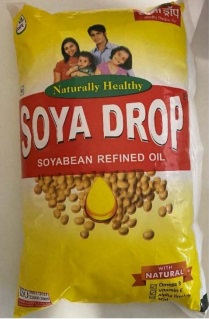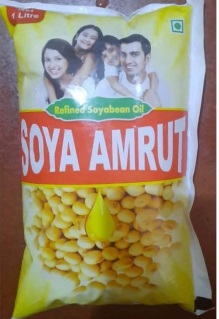In the matter of Sanjay Soya Private Limited v Narayani Trading Company, IA(L) 5011/2020 in COMIP(L) 2/2020 (Suit), Justice G S Patel, the Learned Single Judge of the Bombay High Court (Court) passed a judgment dated 9 March 2021 (Decision) holding that copyright registration is not compulsory. In doing so, the Court overruled the contrary view taken in Dhiraj Dharamdas Dewani v Sonal Info Systems Pvt Ltd and Others (Dhiraj case) which was rampantly misused by infringers to scuttle the rights of copyright owners.
Factual background
Sanjay Soya Private Limited (Plaintiff) instituted a suit for infringement of trade mark and copyright in respect of its label mark (Plaintiff's Label) against the use of a similar label mark (Defendant's Label) by Narayani Trading Company (Defendant). The rival labels are reproduced below:
|
Plaintiff's Label |
Defendant's Label |
 |
 |
The Court granted ex-parte ad-interim relief to the Plaintiff on 26 October 2020. Thereafter, the Defendant entered appearance, the parties filed affidavits, and Plaintiff's Interim Application was heard by the Court.
Issue
Though various issues were raised in the matter, the principal question that the Court took up for consideration was whether registration of a copyright is compulsory for seeking reliefs under the Copyright Act, 1957 (Copyright Act), and to that end, whether the law laid down in the Dhiraj case, which requires compulsory registration of copyright, is good law?
Rival contentions
The Plaintiff contended that the Plaintiff's Label was created by its sister concern SK Oil Industries in 2003, which was subsequently assigned to the Plaintiff via an assignment deed dated 14 December 2004 (Assignment Deed). The Plaintiff's Label was an original artistic work and the Plaintiff owned the copyright therein. Further, the Plaintiff's Label was duly registered as a trade mark in class 29, and has been continuously and extensively used in relation to edible oils. As such, the Plaintiff has considerable goodwill and reputation in the Plaintiff's Label. It was further contended that the Defendant's Label was similar to the Plaintiff's Label. Accordingly, the Plaintiff sought an interim injunction on grounds of infringement of trade mark and copyright in addition to passing off.
In response, the Defendant, inter alia, contended that the Defendant's Label was different from the Plaintiff's Label. It was further contended that the Plaintiff's alleged predecessor, SK Oil Industries, being a legal entity (and not a natural person) could not have been the author of the Plaintiff's Label. Therefore, the said predecessor did not own copyright in the Plaintiff's Label and consequently, the Plaintiff also did not own any copyright in the Plaintiff's Label. The Defendant profoundly relied upon the Dhiraj case and contended that since the Plaintiff had not registered the Plaintiff's Label under Copyright Act, no reliefs under the same could be claimed.
Findings and Decision
On the alleged differences between the rival labels, the Court observed that the rival labels are substantially similar. On the Defendant's contention that Plaintiff's predecessor being a legal entity could not be the author of the Plaintiff's Label, the Court observed that the Copyright Act does not require identification of the actual author of an artistic work. The Court further observed that it was not appropriate on part of the Defendant to challenge the validity of the Assignment Deed since it was a complete stranger to the same.
The Court proceeded to examine whether the law laid down in the Dhiraj case was good law. The Court observed that the Dhiraj case failed to consider prior judgments of the Court wherein a contrary view was taken. The Court revisited the scheme of the Copyright Act and observed that none of the provisions require registration of copyright before seeking reliefs under the Copyright Act. The Court also delved into the legislative history of the Copyright Act and observed that this issue was specifically deliberated and in the enacted Copyright Act, no such requirement of compulsory registration was provided. Further, the Court also relied upon the relevant clauses in the Berne Convention, 1886 and Trade-Related Aspects of Intellectual Property Rights, 1994 to which India is a signatory which also does not require compulsory copyright registration.
In view of the above, the Court declared the law laid down in the Dhiraj case as per incuriam.
Notably, the Court directed the Registrar (Original Side as well as a Judicial-I) and Prothonotary and Senior Master of the Court to circulate a copy of the Decision to all Principal District Judges for future reference.
Comment
The Decision provides much-needed clarity on this issue. The Dhiraj case was often found to be misused by many impingers especially in lower courts leading to long drawn preliminary issue battles. The Decision will encourage creativity as the creators of copyrightable works will not have to compulsorily undergo the rigours of copyright registration for protection of their rights.
The content of this document do not necessarily reflect the views/position of Khaitan & Co but remain solely those of the author(s). For any further queries or follow up please contact Khaitan & Co at legalalerts@khaitanco.com



